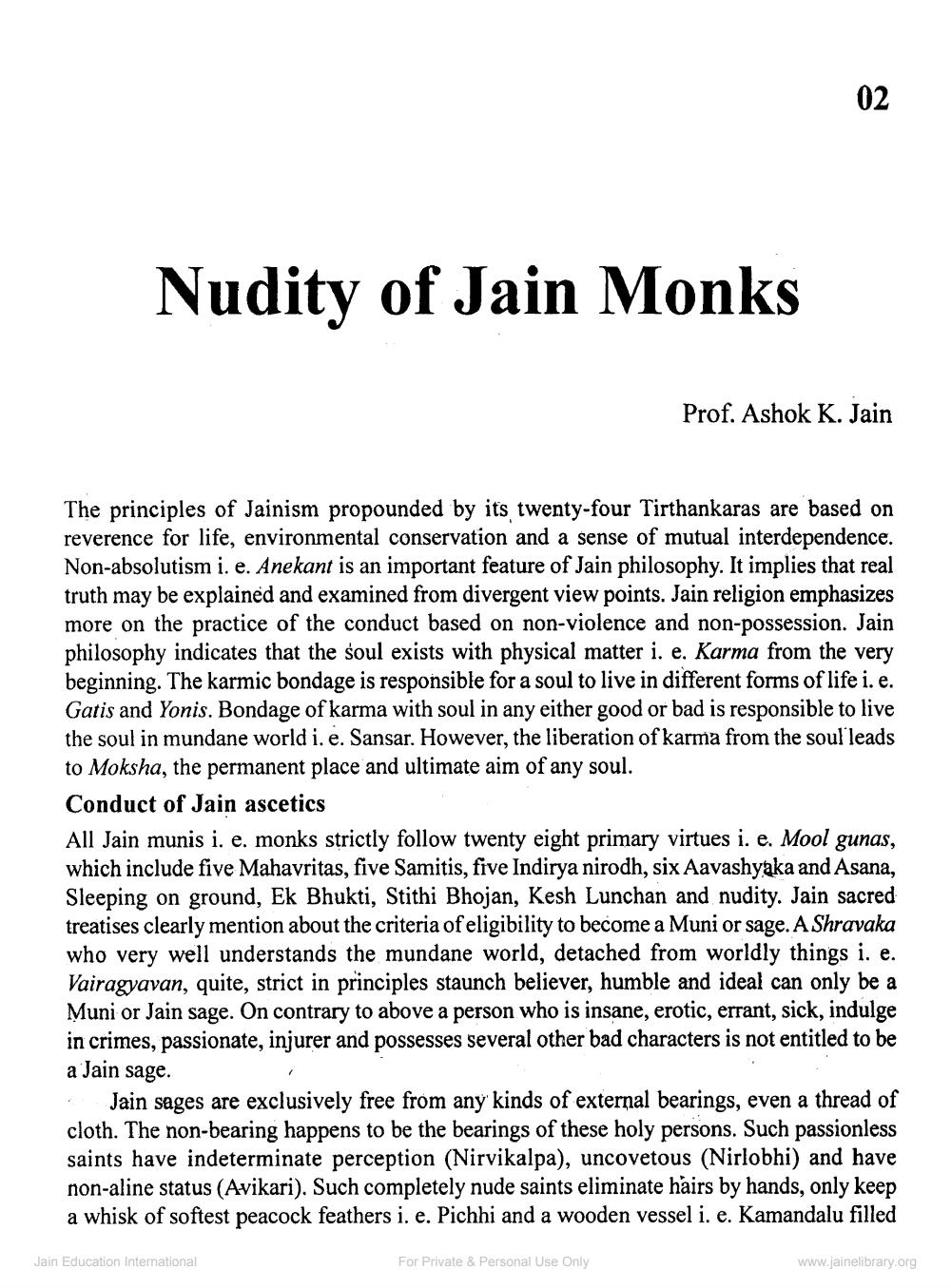________________
Nudity of Jain Monks
02
The principles of Jainism propounded by its twenty-four Tirthankaras are based on reverence for life, environmental conservation and a sense of mutual interdependence. Non-absolutism i. e. Anekant is an important feature of Jain philosophy. It implies that real truth may be explained and examined from divergent view points. Jain religion emphasizes more on the practice of the conduct based on non-violence and non-possession. Jain philosophy indicates that the soul exists with physical matter i. e. Karma from the very beginning. The karmic bondage is responsible for a soul to live in different forms of life i. e. Gatis and Yonis. Bondage of karma with soul in any either good or bad is responsible to live the soul in mundane world i. e. Sansar. However, the liberation of karma from the soul leads to Moksha, the permanent place and ultimate aim of any soul.
Conduct of Jain ascetics
Prof. Ashok K. Jain
All Jain munis i. e. monks strictly follow twenty eight primary virtues i. e. Mool gunas, which include five Mahavritas, five Samitis, five Indirya nirodh, six Aavashyaka and Asana, Sleeping on ground, Ek Bhukti, Stithi Bhojan, Kesh Lunchan and nudity. Jain sacred treatises clearly mention about the criteria of eligibility to become a Muni or sage. A Shravaka who very well understands the mundane world, detached from worldly things i. e. Vairagyavan, quite, strict in principles staunch believer, humble and ideal can only be a Muni or Jain sage. On contrary to above a person who is insane, erotic, errant, sick, indulge in crimes, passionate, injurer and possesses several other bad characters is not entitled to be a Jain sage.
Jain Education International
Jain sages are exclusively free from any kinds of external bearings, even a thread of cloth. The non-bearing happens to be the bearings of these holy persons. Such passionless saints have indeterminate perception (Nirvikalpa), uncovetous (Nirlobhi) and have non-aline status (Avikari). Such completely nude saints eliminate hairs by hands, only keep a whisk of softest peacock feathers i. e. Pichhi and a wooden vessel i. e. Kamandalu filled
For Private & Personal Use Only
www.jainelibrary.org




